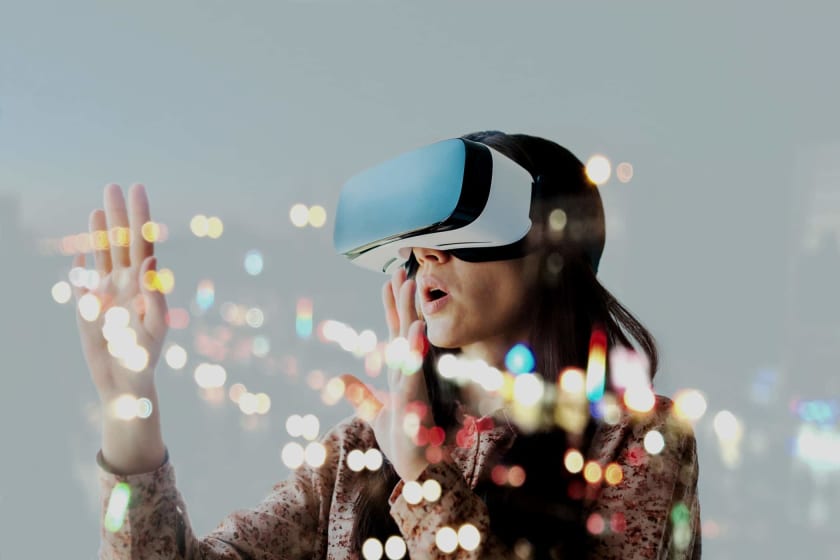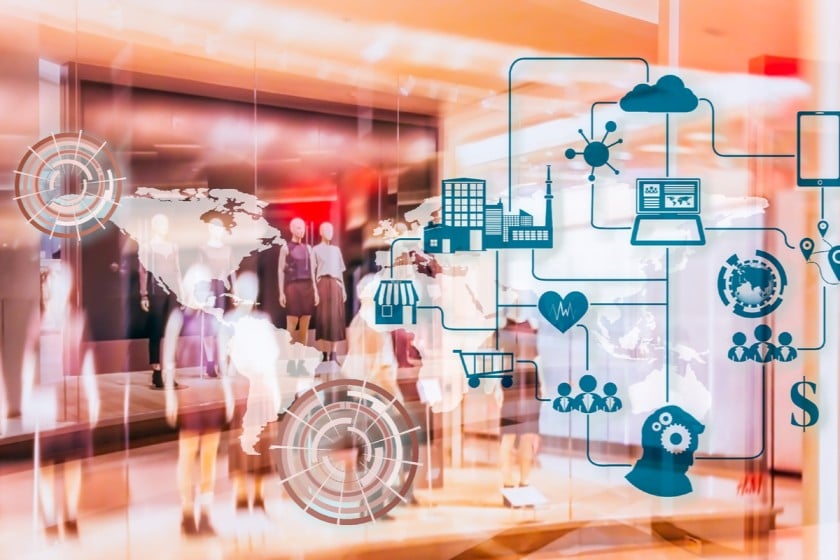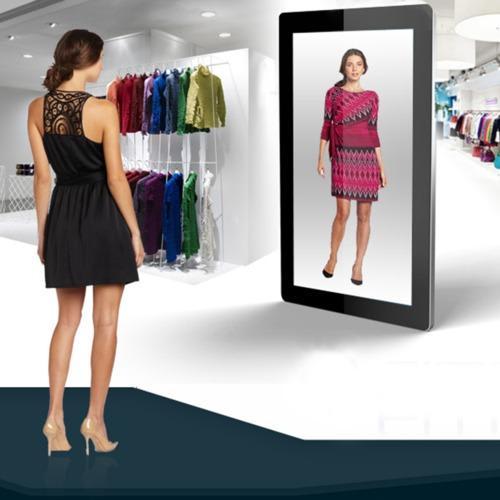Fashion Technology Trends For 2022



Fashion and Technology
The first thought associated with the term fashion is how it impacts an individual’s appearance. The apparel, accessories, and the putting together of looks is something that can easily be related to fashion. Technology isn’t the first thing a consumer may associate with fashion. But as industry insiders will agree, technology has been an integral part of the industry since its inception. It was the technology allowing mass production that catapulted the exponential growth of the industry initially.
As a matter of fact, fashion technology is so important that there are specialized courses available on the subject for those interested in joining the industry. With the rapid advancement of technologies in the world, this correlation between fashion and technology is set to grow further. While tech fashion is not new, the recent emphasis on the digital world and its associated advantages necessitate the industry to carefully explore ways to leverage its capabilities.
Latest Tech Fashion Trends
The world has been moving towards digital platforms over the past few years, and the fashion industry isn’t an exception. The fashion e-commerce stores are a great example of how fashion technology has not just existed on the sidelines but has become a key part of the daily life of customers. Some tech fashion initiatives that have been in the experimental stage for the past few years are now set to take centre stage. Here is a look at some hot fashion technology trends that will be gaining prominence in 2022.
Fashion Technology Trends in 2022

The initial days of tech fashion had been slow and limited. But the combination of factors, including the rapid growth of platforms, technological innovations, and an intent to leverage fashion technology by brands, is leading to aggressive growth in the sector. As industry members, you may have been hearing about terms like Augmented Reality, NFTs, digital avatars, and others. Let us take a look at what some of these terms mean and whether they are relevant to your brand in the coming year.
Metaverse
Whether you are a brand owner or a consumer, this is one term you must have heard. While as a consumer, it may still not be a part of your daily life, as a brand, this is the time for you to understand what the term means. More importantly, you need to have a clear understanding of how to leverage this technology to give your brand a competitive advantage.
Metaverse is being predicted as the future by innovators and tech giants. What does this mean for the fashion industry though? To give you a context, the early adopters are already purchasing real estate in this digital environment. There are start-ups like Al Dente and Threedium that are helping brands transition to the metaverse and getting them ready for the future.
Buying real estate on the metaverse, setting up virtual kiosks, holding virtual gatherings and fashion shows, are some of the recent trends. Things are heating up in the metaverse. As a fashion brand, you cannot afford to lose sight of these developments, as they are the future. In the year 2022 and beyond, every fashion brand needs to start working out its strategy towards building a metaverse presence.
Digital Influencers
As the actual fashion experience starts moving to digital platforms, it is imperative that even the fashion influencers move digital. While digital avatars have existed for some time now, the adoption of the metaverse is fuelling another significant fashion technology – the existence of digital influencers.
As the real influencers work towards building their digital avatars, the flexibility offered by the digital platforms enables the creation of influencers that are born digital. These digital influencers can be created and maintained by the brands themselves. Some brands that are already successfully experimenting with this concept include fashion bigwigs like Forever21 and Tommy Hilfiger. Forever21 is operating a “Shop City” where the digital influencers are creating and managing their own stores. Others are also experimenting with different concepts to make the most of this possibility afforded by tech fashion.
AR/VR
The terms like “Augmented Reality (AR)”, “Virtual Reality (VR)”, and “Mixed Reality (MR)” have been around for some time. One may argue that these are not really new technologies. However, their use in fashion is comparatively new. Brands are now experimenting with AR and VR to enhance the in-store experiences for their consumers. Not just this, the e-commerce platforms are also leveraging these technologies to ensure that their customers get the best experience before making a purchase decision.
In the near future, the adoption of these technologies is expected to grow rapidly. With advances in technology enabling a seamless experience, more and more brands are poised to adopt these methods for their consumers. Thus, as a fashion brand in 2022, one cannot afford to ignore this tech fashion trend.
On-demand Manufacturing
A major concern about the fashion industry is related to wastage. Due to unpredictable customer demand, brands end up with surplus stocks that they have to clear, sometimes even at a loss. Apart from the economic loss, with a rising focus on sustainability, this excess production also raises concerns about the business practices of the brand.
A major fashion technology trend that can help brands win over this dual challenge is on-demand manufacturing. Now, using technology, brands can afford to manufacture garments or accessories on-demand. This reduces their carrying costs, as well as wastage. Producing minimum waste also helps the brand build a sustainable business practice. Thus, on-demand manufacturing is one tech fashion that is rapidly getting adopted worldwide, especially due to its clearly measurable impact on the brand.
NFTs
Whether you are an artist, a designer, or a brand, NFTs are the latest trending topic in all circles. While artists are using this medium to ensure ownership of their artwork, this tool is being leveraged by the fashion industry as well. There are different ways in which NFTs are being used in the fashion industry.
Of course, designers are relying on this fashion technology to assert ownership over their designs and creative ideas. Another important use case is that the NFTs are being used as tokens for invite-only gatherings in the metaverse. The entire luxury fashion industry that thrives on exclusivity is the first to use the power of NFTs to create an exclusive experience for its patrons.
As the tech fashion space evolves, other unique ways of using the power of NFTs will come to the fore. As a fashion brand, this is one fashion technology you must keep your eyes on in the year 2022. To stay ahead of the competition, you may work towards devising a unique method to use NFTs in line with your brand. The improvements in the technology will help you create a niche for yourself with this approach.
Hyper-personalization
With so many trends happening in fashion technology, brands can now look forward to moving towards the ultimate dream of customers and designers. Yes, we are talking of hyper-personalization. This is something that every fashion customer desires – a design made for them and dresses made to their specific measurements. This kind of customization and exclusivity is what makes haute-couture such a prestigious possession. However, when it comes to production at scale, hyper-personalization has not been a feasible option, so far.
Not anymore! With features like on-demand manufacturing and a pre-purchase experience driven by virtual reality, hyper-personalization is no more a pipe-dream. With other fashion technologies like 3D printing being leveraged further, this is a great opportunity for fashion brands to offer the option of hyper-personalization to their customers. While each fashion technology trend may hold an advantageous position on its own, it is clear that when multiple such trends come together, they can offer an even better customer experience.

Wrapping Up
In this article, we discussed how technology has been an integral part of the fashion industry since its inception. As a fashion brand, it is important for you to understand the role of tech fashion in your growth plans. You also saw some of the major fashion technology trends that will potentially be changing the way the industry operates today. An understanding of these trends is important to identify how you can include the same in your roadmap.
A great way to learn about these trends is by interacting with industry peers and thinkers. Fashion expos and trade events present a great opportunity for people from the industry to get together and deliberate on the progress. A similar experience can be found in online communities dedicated to the fashion industry. In the era of digitalization, when we are looking at creating a digital presence, these online communities will be a big part of how the industry operates.
One such community is waiting for you at Fashinza. An end-to-end B2B platform for all players in the fashion industry, this is where you can find peers, suppliers, manufacturers, and brands interacting with each other. You can find the materials you are looking for, place an order, and get them delivered to your facility. Or, you can read detailed articles on all things relevant to the industry. To find more information, and become a part of the community, visit the Fashinza website or app today.



















